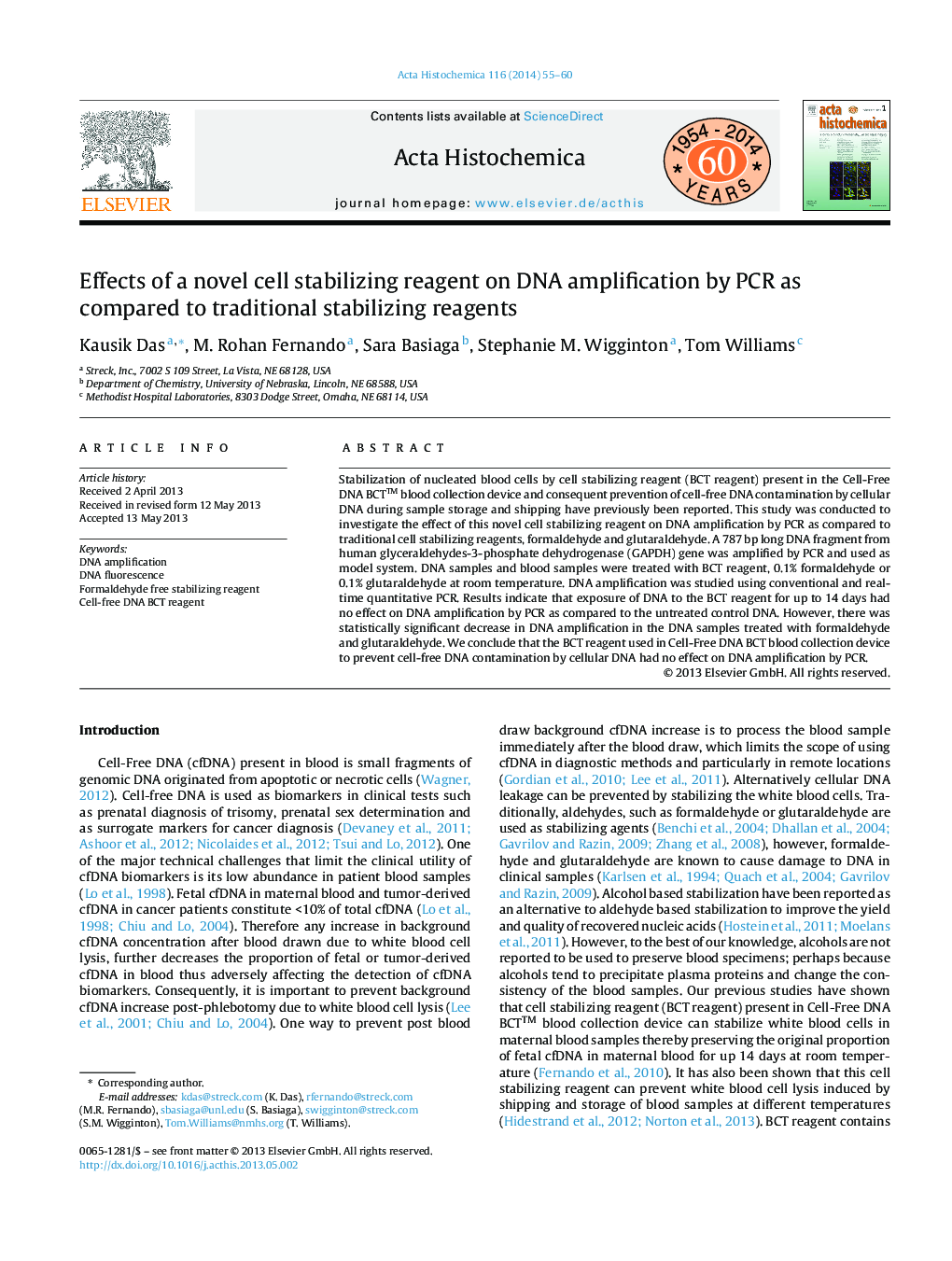| Article ID | Journal | Published Year | Pages | File Type |
|---|---|---|---|---|
| 10747185 | Acta Histochemica | 2014 | 6 Pages |
Abstract
Stabilization of nucleated blood cells by cell stabilizing reagent (BCT reagent) present in the Cell-Free DNA BCT⢠blood collection device and consequent prevention of cell-free DNA contamination by cellular DNA during sample storage and shipping have previously been reported. This study was conducted to investigate the effect of this novel cell stabilizing reagent on DNA amplification by PCR as compared to traditional cell stabilizing reagents, formaldehyde and glutaraldehyde. A 787 bp long DNA fragment from human glyceraldehydes-3-phosphate dehydrogenase (GAPDH) gene was amplified by PCR and used as model system. DNA samples and blood samples were treated with BCT reagent, 0.1% formaldehyde or 0.1% glutaraldehyde at room temperature. DNA amplification was studied using conventional and real-time quantitative PCR. Results indicate that exposure of DNA to the BCT reagent for up to 14 days had no effect on DNA amplification by PCR as compared to the untreated control DNA. However, there was statistically significant decrease in DNA amplification in the DNA samples treated with formaldehyde and glutaraldehyde. We conclude that the BCT reagent used in Cell-Free DNA BCT blood collection device to prevent cell-free DNA contamination by cellular DNA had no effect on DNA amplification by PCR.
Keywords
Related Topics
Life Sciences
Biochemistry, Genetics and Molecular Biology
Biochemistry
Authors
Kausik Das, M. Rohan Fernando, Sara Basiaga, Stephanie M. Wigginton, Tom Williams,
